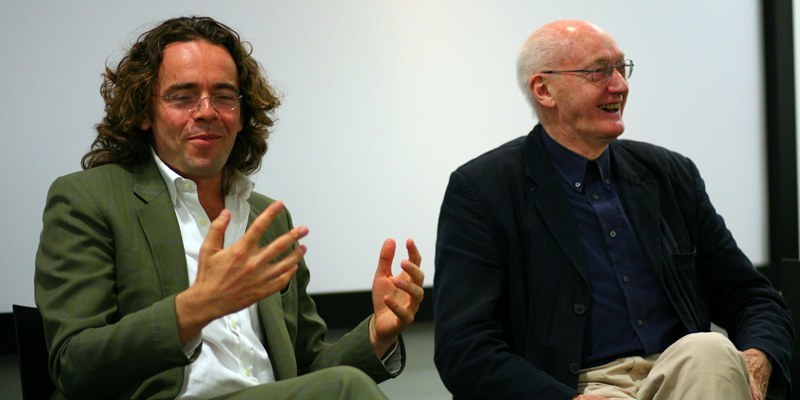Good judgment or luck? You cough up $40,000 for the memoirs of an unknown American senator after seeing his photograph in a bookshop. He defeats Hilary Clinton for the Democratic nomination and goes on to become America’s first black president.
Good judgment and good fortune for Jamie Byng, the prescient publisher of Canongate Books, whose Dreams of My Father by Barack Obama has now sold 1.2 million copies in its Canongate edition alone.
In one of the Dundee Literary Festival’s most eagerly awaited events Byng took the platform at Dundee University’s Dalhousie Building accompanied by a trio of his most popular authors Louise Welsh, Michel Faber and the former Bishop of Edinburgh Richard Holloway.
Canongate, like D. C. Thomson in Dundee The Courier is a festival sponsor is proudly an independent Scottish publisher. It was founded in 1973, fell on hard times, and was bought and sold a couple of times before emerging in 1994 under the dynamic guidance of Byng and its original owner Stephanie Wolfe Murray.
In championing Scottish authors such as Naomi Mitchison, Neil Munro and Alasdair Gray, while nurturing home-grown talent, its roots and spirit have remained Scottish. But its publishing parish is international in outlook and includes storytelling superstars such as Philip Pullman, Ali Smith and Margaret Atwood.
Richard Holloway, whose energetic stint as chairman of the Scottish Arts Council ends on Friday, best summarised Canongate when he said it “inspires loyalty and affection” while instinctively supporting “excitement, daring and risk” in its writers.
The company became a household name in 2002 when Life of Pi by Yann Martel won the Booker Prize. With a world best-seller on its hands, Byng described how Canongate’s turnover the following year doubled from £3 million to £6 million as new doors opened and it became “more credible.”
Yet while acknowledging today’s tough trading times, he embraced the emergence of electronic readers, which some claim will signal the final chapter of the printed book.
Byng pulled his iPhone from his pocket and told the audience that an app could allow him to see a seven-hour video on his phone of Nick Cave reading The Death of Bunny Munro.
Also causing a buzz was the announcement that Canongate’s archive of publications, draft scripts, artwork and proofs, has moved from its Edinburgh base to Dundee University.
The post-prandial entertainment continued with a reading by novelist Lesley Glaister. Married to acclaimed Scottish author Andrew Greig, Glaister reviews books for the Times and Spectator, is writer-in-residence at Edinburgh University and teaches creative writing at Sheffield Hallam University.
Glaister read from her 12th novel, Chosen, drawing on her experiences in the 1970s and the venial social crimes of hippy, druggy, spiritually-obsessed cults to produce another of her trademark tense plots. Not to be found alongside Jordan’s autobiography, by the way.
Alongside Jackie Kay’s epic on Thursday, Glaister’s reading was possibly the festival’s best so far though she acknowledged those frustrating periods on a manuscript’s journey from private to public where work is set aside or even jettisoned.
